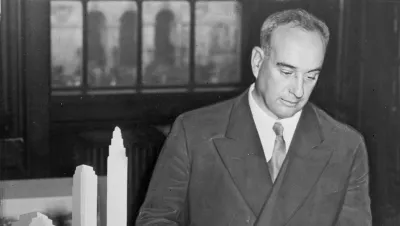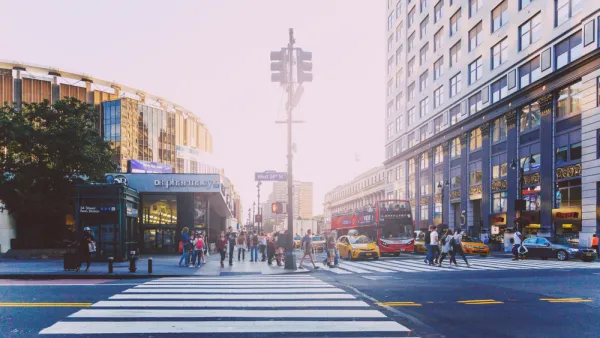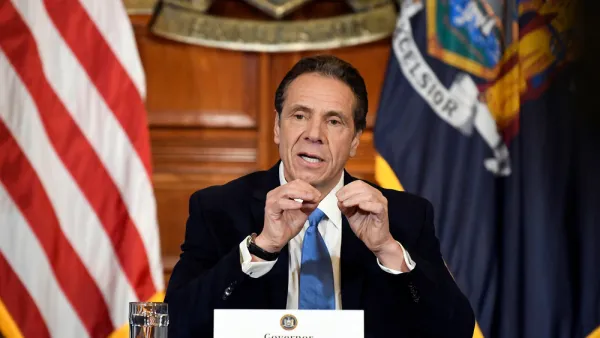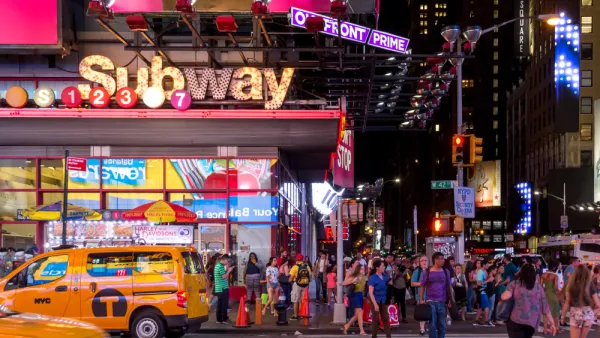In a deep dive into the sad state of the nation's busiest transit hub, Marc J. Dunkelman raises a dispiriting question. In their zeal to ward off future Robert Moseses, have progressives crippled government's power to carry out its job?

"Penn Station is the second most heavily trafficked transit hub in the world, trailing only Tokyo's Shinjuku Station," Marc J. Dunkelman writes. "For more than a generation, New York's most important gateway has been a grimy relic." Determining exactly why that is led Dunkelman on a lengthy investigation into how the politics of infrastructure have evolved in New York City.
His conclusion: Penn Station has languished because political progressives fear the power Robert Moses once wielded and have defanged it over time, tying their own hands along the way. "No one has the leverage to fix [Penn Station]. The sad state of America's most important train station stems more from a failure of power than a failure of leadership. And shockingly enough, that's not by mistake—it's by design."
Dunkelman argues that the publication of Robert Caro's seminal work on Moses, The Power Broker: Robert Moses and the Fall of New York, marked the starting point for an anti-power strain on the left that worked in concert with the anti-government right, in reality if not in rhetoric, to undermine public sector effectiveness.
He writes, "Even as progressives have championed Big Government, they've worked tirelessly to put new checks on its power—to pull it away from imperious technocrats who might use government to bulldoze hapless communities. And it's that impulse to protect the powerless from the abuse of public power that is most responsible for the morass that is Penn Station."
Dunkelman's narrative traces how increasingly unambitious plans have been put forward to remake the station, only to run up against a dynamic in which "where so many players can exercise a veto, it's nearly impossible to move a project forward." He goes on, "The Trump era may not be the moment to extol the virtues of unchecked executive power. But Penn Station's story suggests that, for those hoping to achieve traditionally progressive aims, America's cultural aversion to power has gone too far."
FULL STORY: This Is Why Your Holiday Travel Is Awful

Analysis: Cybertruck Fatality Rate Far Exceeds That of Ford Pinto
The Tesla Cybertruck was recalled seven times last year.

National Parks Layoffs Will Cause Communities to Lose Billions
Thousands of essential park workers were laid off this week, just before the busy spring break season.

Retro-silient?: America’s First “Eco-burb,” The Woodlands Turns 50
A master-planned community north of Houston offers lessons on green infrastructure and resilient design, but falls short of its founder’s lofty affordability and walkability goals.

Test News Post 1
This is a summary

Analysis: Cybertruck Fatality Rate Far Exceeds That of Ford Pinto
The Tesla Cybertruck was recalled seven times last year.

Test News Headline 46
Test for the image on the front page.
Urban Design for Planners 1: Software Tools
This six-course series explores essential urban design concepts using open source software and equips planners with the tools they need to participate fully in the urban design process.
Planning for Universal Design
Learn the tools for implementing Universal Design in planning regulations.
EMC Planning Group, Inc.
Planetizen
Planetizen
Mpact (formerly Rail~Volution)
Great Falls Development Authority, Inc.
HUDs Office of Policy Development and Research
NYU Wagner Graduate School of Public Service




























